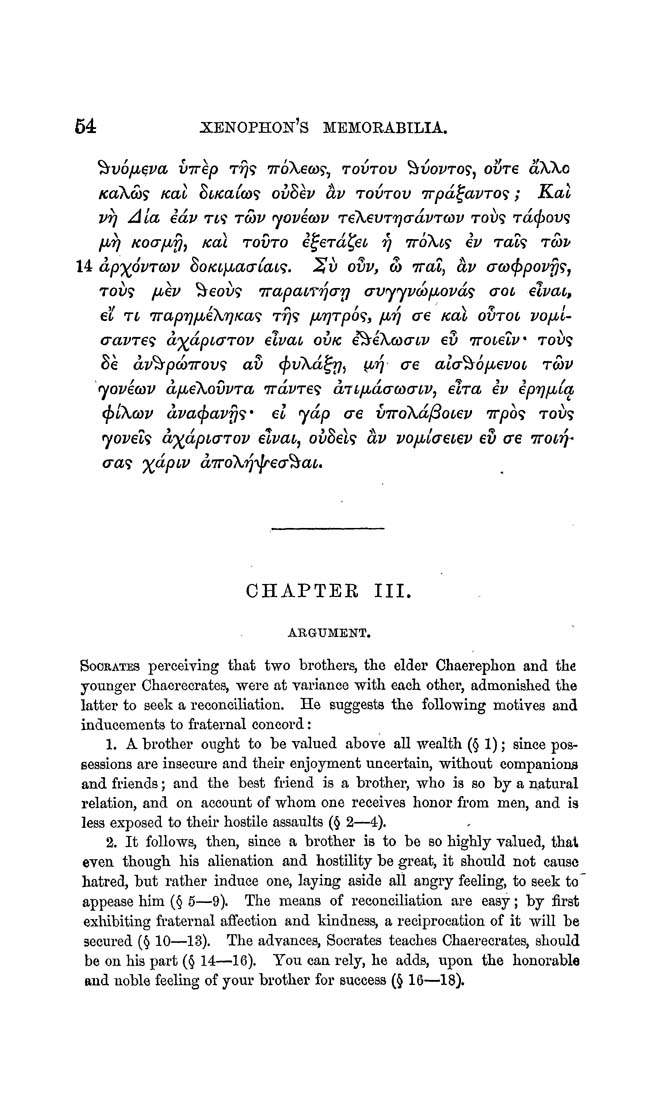54 xenophon's memorabilia.
^vbpteva virep T779 TToXecos., tovtov ^jjovtos, ome dXXo
KoXcbs Kal StKaicos ovSev dv tovtov TTpd^avTOs; Kat
vf) Ala idv Tts Tcbv yovecov TeXevTyadvTcov tovs Tacpovs
ptf) Koaptfj, Kal tovto i^eTa^et y TTbXts iv Tals tcov
14 dpxbvTCov SoKtptaatats, Sv ovv, w TTal, dv aco^povys,
TOVS ptev ^eovs TTapatryay avyyvcoptovas aot elvat,
et Tt TTapypteXyKas Trjs ptyTpbs, pty ae Kal omot voptt-
aavTes dxdptaTOV elvat ovk i^eXooatv ev TTOtelv* tovs
Se dv^pdoTTOvs av ^vXd^y, (ly ae ala^bpbevot tcov
yovecov dpteXovvTa TTdvTes aTtptdacoatv, elTa iv ipyptict
CptXcov dva<pavys* el ydp ae vTToXd/Sotev TTpbs tovs
yovels dxdptaTOV elvat, ovSels dv voptiaetev ev ae TToty-
a as X^P^^ dTToXrjylrea^at,
OHAPTEE III.
ARGUMENT.
SooRATES perceiving that two brothers, the elder Chaerephon and the
younger Chaerecrates, were at variance with each other, admonished the
latter to seek a reconciliation. He suggests the following motives and
inducements to fraternal concord:
1. A brother ought to be valued above all wealth (§ 1); since pos¬
sessions are insecure and their enjoyment uncertain, without companions
and friends; and the best friend is a brother, who is so by a natural
relation, and on account of whom one receives honor from men, and is
less exposed to their hostile assaults (§ 2—4).
2. It follows, then, since a brother is to be so highly valued, that
even though his alienation and hostility be great, it should not cause
hatred, but rather induce one, laying aside all angry feeling, to seek to'
appease him (§ 5—9). The means of reconciliation are easy; by first
exhibiting fraternal affection and kindness, a reciprocation of it will be
secured (§ 10—13). The advances, Socrates teaches Chaerecrates, should
be on his part (§ 14—16). You can rely, he adds, upon the honorable
and noble feeling of your brother for success (§ 16—18).
|








